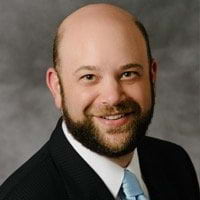Credit Unions, Cars, and Cross-Collateralization
This week, we have another question from a listener of The Crushing Debt Podcast. Rather than repeat the question (it’s a bit long) we’ll summarize it. The borrower financed his car through a credit union and also has a credit card through the same credit union. The car loan was paid off but there is still a balance due on the credit card. The borrower was in a car accident and his car was totaled. Now, waiting for his insurance proceeds, the credit union is demanding that the proceeds from the car accident be used to pay off the credit card debt (around $2,000). The listener’s question is whether bankruptcy will eliminate the Credit Union’s demand for the insurance proceeds to be applied towards the credit card balance.
In this case, based on these facts, it is our opinion that the borrower should allow the proceeds of the car accident from the insurance company to pay off the credit card debt and use the balance to buy or finance a new car.
The Credit Union likely has a “cross-collateralization” agreement amongst the paper work signed by the borrower. Put simply, this means that all debt owed to the Credit Union is secured by any assets pledged as security to the credit union. In other words, both the car loan AND the credit card are secured by the car. If the borrower does not pay off the credit card, the credit union can still repossess the car. These agreements are typical for Credit Unions; we’ve never seen one in a consumer setting for a traditional bank (like Bank of America, Wells Fargo, Regions, etc.). However, Because these types of arrangements are contractual in nature, you need to read everything the bank, or Credit Union, asks you to sign so you understand your obligation(s) to the lender. Because of the cross-collateralization agreement, the Credit Union likely has a lien against the car, and therefore the proceeds of the car accident, based on the outstanding credit card debt.
The borrower may be able to file bankruptcy (a Chapter 13 repayment plan) and eliminate the credit card as a secured debt – since the car is totaled. The bankruptcy code may allow us to “strip” or eliminate a secured debt that was not incurred to purchase the car (i.e normal credit card purchases), turning the debt into a pure unsecured debt, but then the insurance proceeds from the car accident will have to be used to pay all unsecured creditors, including the credit union, meaning the borrower will be unable to use the proceeds of the accident to buy a new car – since it will be used to pay all of his unsecured creditors. In a Chapter 7 liquidation case, the debtor will similarly lose the insurance proceeds, likely in a lump sum, to the Chapter 7 Trustee.
Finally, because the credit card debt is relatively low ($2,000 in the question presented) the car accident proceeds will likely pay off the entire credit card and still leave some money to buy a new car. If the credit card debt was more significant or even in excess of any insurance proceeds, then we would explore other options to settle with the credit union. In our experience, however, credit union debt is difficult to settle – often they will not discount, so the borrower would have to pay 100% of the debt owed. Where Credit Unions are flexible, is that in most cases the Credit Union will take payments over time.
Based on the facts, because the debt is relatively low ($2,000) and likely covered by the insurance payment, because the debt is cross-collateralized, because the creditor is a Credit Union, and because a bankruptcy trustee would require all of the insurance proceeds to be paid to unsecured creditors, we would advise the listener to avoid bankruptcy and use the insurance money to pay off the credit card debt, using the balance to buy or put a down payment on a new car.
For more information on debt settlement, bankruptcy, cross-collateralization, Credit Union debts, and car accidents, please subscribe to the Crushing Debt Podcast, on iTunes, Stitcher, and GooglePlay. If you prefer, please contact us to schedule a free initial consultation to discuss your options at 727-261-0224 or email me directly at shawn@yesnerlaw.com.
Shawn M. Yesner, Esq., is the host of the Crushing Debt Podcast and founder of Yesner Law, P.L., a Tampa-based boutique real estate and consumer law firm that helps clients eliminate the financial bullies in their lives. We assist clients with asset protection, the sale and purchase of real property, Chapter 7 liquidation, Chapter 13 reorganization, bankruptcy, foreclosure defense, debt settlement, landlord/tenant issues, short sales, and loan modifications in Tampa, Westchase, Odessa, Oldsmar, Palm Harbor, Clearwater, Pinellas Park, Largo, St. Petersburg, and throughout the greater Tampa Bay area.




